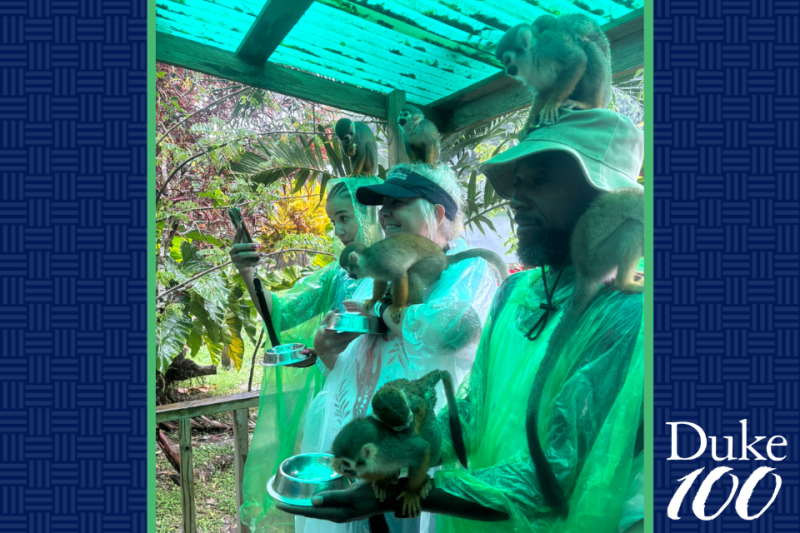
Zarrin Brooks, CRA, has spent 10 of her 32 years at Duke in the Department of Psychiatry & Behavioral Sciences, with more than two decades separating her two very different roles in the department.
A grants and contracts manager in the department since 2019, Zarrin and her team help identify, prepare, submit, and manage research grants for the department’s faculty investigators. She advises on allowable costs, effort management, Duke and sponsor compliance, and many other grant issues that come their way. She also mentors five staff members.
Zarrin began her Duke career in 1992 in the department’s developmental epidemiology program, where she was hired to enter data for an assessment used in the Great Smoky Mountains Study. Before long, she transitioned to developing the program’s publication library—a labor-intensive effort that, in pre-internet times, involved trips to campus libraries and creating a hard copy filing system. From there, she said, “Everyone in the group gave me various jobs that helped build the foundation I have today.”
Between her first four-year stint and her current position in Psychiatry & Behavioral Sciences, Zarrin’s roles have spanned the spectrum of research administration—from staff specialist to research administration business process analyst to financial practice manager and several titles in between.
Her responsibilities over the years have included assisting with grant submissions, preparing cost estimates for sequencing and genotyping services, managing a large animal research laboratory, and participating in institutional committees to inform research administration practices at Duke.
Zarrin recently shared some reflections about her time at Duke.
What do you enjoy most about working in Duke Psychiatry?
The family environment. Everyone genuinely cares about each other and what we have going on outside of the department: kids’ graduations, new grandchildren, our pets, special trips, and vacations. And I know when I need a moment, my manager is right there with me, helping me through it.
How has your role evolved over the time you’ve been in Duke Psychiatry?
When I started in 1992, I was just a kid finding her way. Coming back in 2019, Duke Psychiatry has allowed me to see where I fit in and grow my skills. I can mentor the younger generation and collaborate with folks with just as much experience. I’ve evolved to become part of the brain trust in the group.
What changes have you observed at Duke or in the department since you started working in Duke Psychiatry?
I came back to Psychiatry just 12 months before COVID-19 hit. Our group has changed from 100 percent in-person to competent remote employees using all the technology and collaborating with colleagues from different states. You would have never imagined this in 2019. And the best part is that we’ve transitioned into a completely paperless environment (I no longer have piles of file folders on my desk!).
What has your favorite role been at Duke, and why?
This is a tough one. Every one of my roles was an adventure and served a purpose. I’ve met so many great faculty and staff along the way. Being part of research at Duke, in all forms, gives me a reason for and satisfaction from my career. I’ve dabbled in clinical trials for drugs that saved lives, helped secure funding for Parkinson’s, Alzheimer’s, neurocognitive decline, traumatic brain injury, and genetics of rare diseases, and learned the behind the scenes world of central offices. Duke over the past 30 years has been worth every step.
What advice would you give to new Duke employees?
Meet people. Connect with the names you see in Zoom. Establish relationships. A career at Duke will always bring you back around to the people who were there in the beginning.
What do you like to do when you’re not working?
Spend time with my two dogs (Treble and Dozer) and convince my husband it’s time for another trip somewhere.
“Zarrin approaches each task with dedication, positivity, and a collaborative spirit. Her varied and extensive Duke experience makes her an invaluable asset to the department and institution. Personally, I admire her kindness and the thoughtful energy she brings to every interaction. She's truly inspiring and she makes us a better team!”
— Rebecca Hausmann, CRA, Senior Grants & Contracts Manager
This article is part of a series of spotlights on Duke Psychiatry & Behavioral Sciences staff members who have worked at Duke for 30+ years, developed in honor of Duke's Centennial celebration.